
Mahdi Baraghithi
How to Survive Europe, 2017

While Mahdi Baraghithi was doing his master’s degree in Bourges, France, one of his friends was attacked by a group of men in the street. As the assault was clearly based on Islamophobia and racism, Baraghithi began analysing how Arabs in France found ways to protect themselves in these situations. He asked his fellow Arab friends how they dealt with the public shaming and violence.
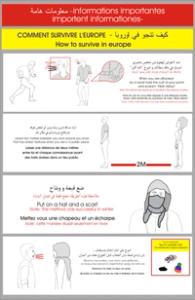
The purpose of this research was not only to share tips, but also to bring the subject of Islamophobia to the surface and open up a conversation. One of the most efficient tricks consists of shouting ‘Allahu akbar’, which makes every Islamophobe run for their lives. Some of his interviewees admitted to covering their faces with scarves in winter not from cold but just to hide their skin colour.
This is how the concept for How to Survive Europe came to life. Baraghithi specifically points out that this project is a collective work between him and the Arab people facing racist attacks all over Europe. After finishing the poster, he distributed multiple copies to Bourges, Paris, London and Stockholm, placing them in the public sphere. Most of them did not manage to stay there for longer than 48 hours and were taken away for its clear political message. The police even paid Baraghithi a visit at his school in Bourges to warn him about his actions. For Baraghithi, the fact that they were able to locate him so quickly, explains a lot about the racial profiling within the police system.
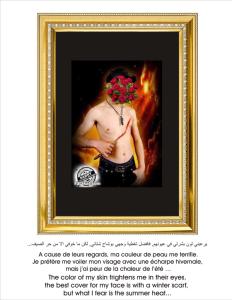
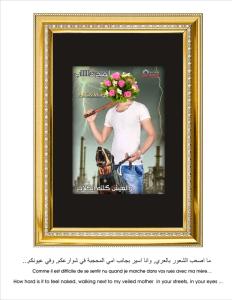
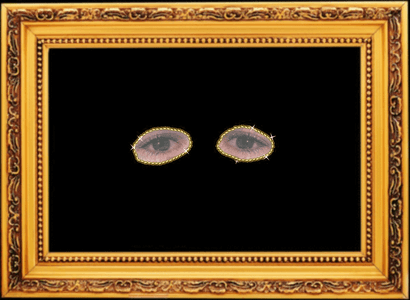
‘I investigate how men are shaped and reshaped throughout childhood and adolescence, and question the possibility and impossibility of over-coming gendered and aged domination in Palestinian society. My work focuses on deconstructing the representation and construction of masculinity in Arab societies more widely, and more specifically in the Palestinian context.’
Baraghithi is interested in the way people found on other people's Facebook accounts. present themselves and project their self-image. For these GIFs, he used images he found on other people's Facebook accounts. The hands, as well as the eyes and the knife are religious motifs. As religion is a common reason behind choices concerning appearance, it forms a crucial aspect of Mahdi’s work. For example, privacy is not the only purpose behind his models’ flower heads. In islamic iconography, an image of a human being has to be adjusted in order to maintain respect towards the creator. Common solutions are the addition of flowers or fire.
Other characteristic elements in Baraghithi’s oeuvre are the remarkable, kitschy frames. These are references to the plastic photo frames found in Palestinian refugee houses used for pictures of the homeland, family houses and gardens. For his family still living in refugee camps around Jordan, the frames are seen as valuable elements, which he uses out of a sense of nostalgia. Additionally, the framed pictures work well to hide grey, cold walls, and metaphorically, the grey present with a touch of hope for a better future.
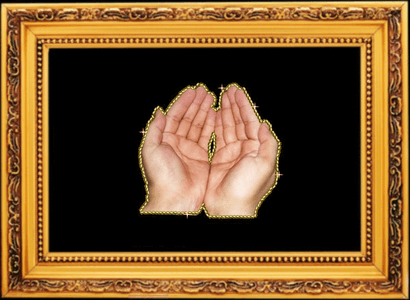
Mahdi Baraghiti is a visual artist who works across a range of media including performance, installation, and collage. He explores and deconstructs representations of masculinity and the male body in Arab societies, specifically in his own context of Palestine through materials, such as found images and readymade objects.
Interview by Clara Wouters